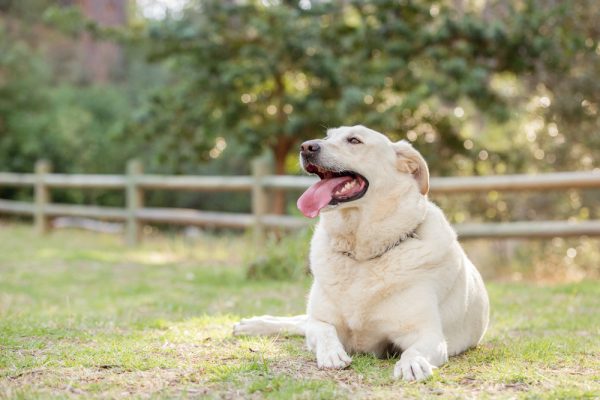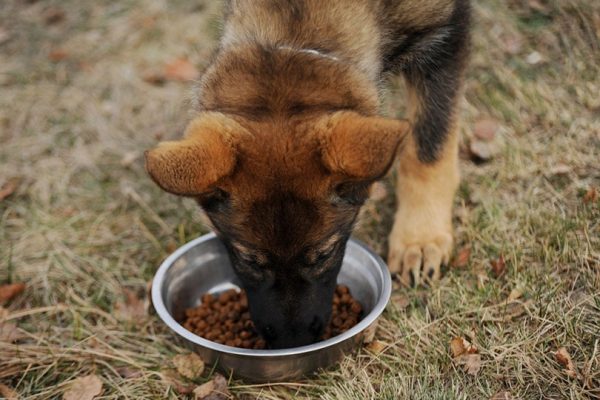In this article
View 2 More +When puppies cry or whine, it can be heartbreaking. When it continues, it can become stressful, frustrating, and overwhelming. But just like babies, puppies vocalize for a reason. Understanding the reason is key to making sure they’re safe and comfortable—as well as getting some relaxation and sleep yourself.
Find out the reasons puppies whine and cry, what they need, and how you can help them.

Is Puppy Whining Normal?
During the first two weeks of life, a puppy’s eyes and ear canals are still closed. They basically sleep, nurse, and poop. They’re completely helpless and need everything from their mother, from milk to a secure spot to sleep to grooming, so they’re often the loudest during this time.
As they mature, their eyes and ears open, they can crawl and walk, and they become more social and curious. They interact with littermates as well as their mother, and the whining and crying slowly decreases—but doesn’t stop completely.
Whining is a normal form of communication for puppies of all breeds and ages. They use sound to communicate their needs to their mother, which extends to you when you bring them into your home.
Essentially, a whine is an alarm that indicates the puppy needs something, whether it’s food, warmth, or attention, or that something is wrong. After they’re weaned and under your care, they still rely on that communication to alert you to their needs.


The 6 Reasons Puppies Cry or Whine
Puppies can cry or whine to tell you several things, and it’s up to you to determine what the problem is to fix it.
1. They Need Something
A puppy’s first instinct if they want something is to whine. It could be for something urgent and important, like needing to go outside to relieve themselves and wanting food, or something less serious, like needing attention or a toy that’s out of reach.

2. They’re Afraid of Being Separated
Puppies get very attached to their mother and littermates. Once you bring them home, they form that attachment to you and your family. Typically, puppies will cry if they are separated and feel scared or alone. Learning to sleep comfortably alone can take some time. Crate training your puppy is one way of helping them get used to sleeping alone.
3. They’re in Pain
If your puppy is in pain, they will often whine or cry just like a human baby. This could be from something minor like getting their first vaccine or getting their toes stepped on. It’s often more dramatic than an adult dog, even if the “injury” isn’t dramatic.
If you are concerned about the health and well-being of your pet, seek veterinary advice for the best course of action.
If you need to speak with a vet but can't get to one, head over to PangoVet. It's our online service where you can talk to a vet online and get the advice you need for your dog — all at an affordable price!

4. They’re Feeling Unwell
It’s common for puppies to whine or cry if they’re not feeling well. If you notice other signs of illness, such as diarrhea, vomiting, or discharge from their eyes or nose, seek help from your veterinarian. While some diarrhea can occur in puppies, severe or prolonged diarrhea or vomiting in puppies can become serious quite quickly and need treatment.
5. They’re Excited
Puppies may whine if they get excited, such as when you take them for a walk or when they see new people. This is usually an expression of enthusiasm, not fear, pain, or discomfort.

6. They’re Unhappy With the Situation
Anyone who’s ever crate-trained a puppy is familiar with whining and crying. This is a common occurrence and one that often gets them what they want—out of the crate.

Should I Comfort a Whining Puppy?
There’s a tricky line between reinforcing whining as a way for your puppy to get what they want and supporting them to ensure they feel safe, secure, and confident on their own. The advice to let them “cry it out” is outdated and can lead to problems later in life.
It’s important to understand why your puppy is crying or whining to determine how to respond. If they need to go outside, let them outside. If they’re scared of something, providing comfort is a positive experience that lets them know they’re safe with you.
Proper crate training is a crucial part of minimizing whining in a crated pup. Playing with your puppy in the crate, teaching them to go in on their own, and feeding meals in the crate can help them become more comfortable.
At night, you can keep the crate near your bed and reach out to your puppy if they whine to provide comfort. As your puppy gets more comfortable sleeping in the crate, you can slowly move the crate farther away over time.

Conclusion
Puppies use whining and crying as a main form of communication from their earliest moments. While they may whine for different reasons, how you handle them has a significant impact on your puppy’s development and confidence during this important socialization period.
Featured Image Credit: Oksana Bessonova, Shutterstock



















